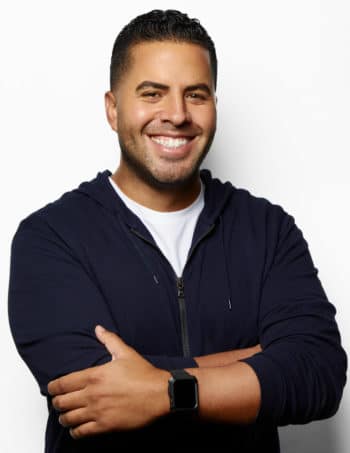
Three months before graduating top of his class, Jeremy had secured a then rare, and soon to be coveted, internship at the world renowned Westlake Recording Studios, artistic home of such music legends as Michael Jackson and Elton John, and frequented by popular artists like Rihanna, Justin Timberlake, and Britney Spears. Working his way up from intern, to runner, assistant engineer, to engineer, Jeremy watched, listened and gleaned from some of the industry’s most respected artists, producers, record label executives and A&Rs.
After being in the room, working side by side, and interacting with such big-hitters he so strongly admired as David Foster and Simon Cowell, there was no doubt there was much more to the business than anyone could learn in school. Passionate and hungry, Jeremy was like a sponge, soaking up everything he could, learning as he went, and eventually discovering he had his own distinct opinions and point of view about the process. As time went on, he became more and more empowered to voice those opinions, and more and more they were heard and utilized. It was clear Jeremy had something to offer beyond engineering and assisting others on the technical side. On more than one occasion, he was offered jobs by record label A&Rs and music executives for, when he was “done with engineering.” Eventually, Jeremy decided, although he fully enjoyed all the exposure, connections and experiences he had at Westlake Studios, after three and half years, it was time to move on.
Intrigued by watching Aaron Bay-Schuck’s development of Bruno Mars, Rob Fusari’s development of Lady Gaga, impressed by Alex-da-Kid’s work on Imagine Dragons’ Continued Silence EP, (which went on to be the highly successful album Night Visions), as well as visually watching the hit-making process on albums like, Ne-Yo’s Year of the Gentlemen, Grace Potter and the Nocturnals’ self titled album, and Rihanna’s Good Girl Gone Bad and Rated R, Jeremy gained a solid foundation and greater sense of what it takes to assemble the right team to create something special with an artist, a track, an album, making the difference between ordinary and extraordinary. With this expanding knowledge base, a knack for spotting budding talent, combined with a long-term vision of all elements needed to shape and mold that talent to its next level, Jeremy was naturally lead to A&R work, and artist development became the next chapter in his catalog. He consulted for several labels for the next year.
Unfortunately, it wasn’t long before Jeremy became disillusioned by the record label “food chain” and web of infrastructure, which often tied his hands and made months of work obsolete with a single veto vote. Additionally, the changing landscape of the music business left little room for true artist development. This, coupled with the occasional lack of integrity he encountered, (insert the un-credited discovery of now famous band story here), that left a bad taste in his mouth, and led him to create his own management company. There, he could have more control, advocate better for the artist, and see his vision through.
In the next three years, he went on to work with a handful of artists, and in doing so, found himself maneuvering more through the business side of artist management, in addition to overseeing all creative elements.
On the creative side, he navigated all aspects of the artist’s image, including developing the live performance, supervising studio sessions and executive producing music tracks, monitoring social platforms, and bringing together the best artist team to accomplish these goals. On the business side, he was now securing funding, booking gigs, negotiating with labels, reviewing contracts, pitching songs for licensing and publishing, and handling all brand relations.
During this time, Jeremy also worked in private equity and advertising to pay the bills. He had no idea how much this would support and compliment his work in music, most profoundly branding, in the coming years.
In 2014, Jeremy was given an offer to fold his company into DMI Records and Publishing, (Aretha Franklin, Dionne Warwick). There, he would act as VP of A&R, oversee Firehouse Recording Studios, all Brand Relations, and continue artist management. Excited to have more of a platform to discover and develop artists, and expand his brand relationship opportunities, Jeremy jumped on board. Ironically though, it would be the lack of infrastructure and collective vision that would lead to continued roadblocks. All too often, again, he felt his hands were tied. In early 2015, DMI and Jeremy would part ways. Little did he know, it was a blessing in disguise.
Soon after, Jeremy was brought on to Lippman Entertainment as Head of Brand Relations, a position that had not previously existed. Jeremy’s penchant for creative and innovative ideas, and his enthusiasm for partnering and aligning brands with music won Nick Lippman over. Jeremy’s job title has since expanded to include artist management.
Working with Lippman has allowed Jeremy to both return to his roots and utilize his full skillset and passions around music, but now with the added heat the Lippman powerhouse name brings. He considers himself lucky to again have secured a coveted position with such a well-established and respected company. Although humbled by the opportunity, Jeremy feels right at home in this family business. With a synergy that is palpable, a common work ethic, values, and focus on artist advocacy, Jeremy is excited to start every workday under Lippman Entertainment’s roof, tackling whatever comes his way.
Simply, Jeremy is a fan of music, all aspects, a “superfan” some might say. He wants everyone to have the experience he would most desire, and that informs everything he does. Most importantly though, he’s a fan of the artist. Jeremy has always known, with the right team and the right template, a good artist can be a great artist. And when that artist is happy and doing well, everyone wins.
